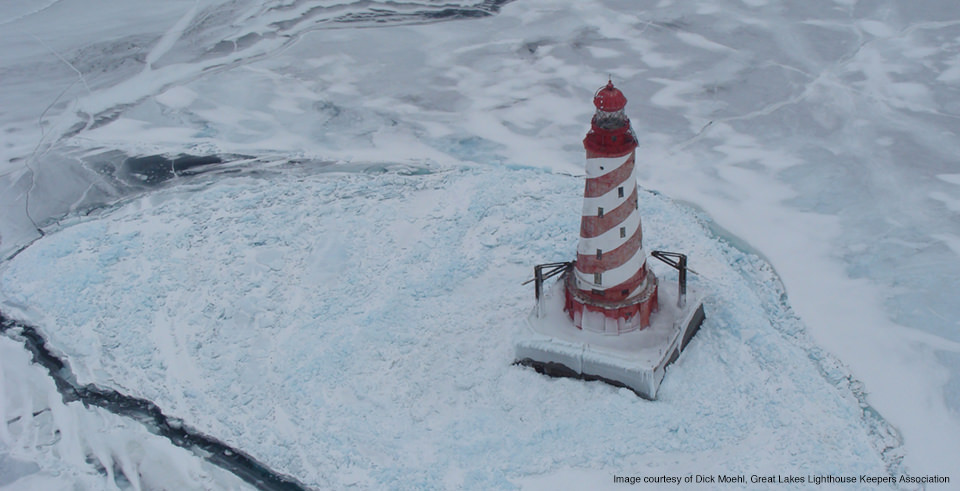Where do fish go when it freezes outside?
Most fish slow down and "rest" near the bottom during cold winter months.

White Shoal Lighthouse in northern Lake Michigan.
Have you ever wondered how fish survive in cold winter weather, or where they go when lakes and ponds freeze over?
Like many people, fish tend to be less active in the cold. As cold-blooded creatures, their metabolism dips when temperatures take a dive.
The layer of ice that forms on top of a lake, pond, river, or stream provides some insulation that helps the waterbody retain its heat. Because warm water sinks in very cold freshwater, fish in these water bodies often gather in groups near the bottom. Some species, like koi and gobies, may burrow into soft sediments and go dormant like frogs and other amphibians, but most fish simply school in the deepest pools and take a "winter rest."
In this resting state, fishes' hearts slow down, their needs for food and oxygen decrease, and they move about very little. If you've ever gone ice fishing, you know that a long line, a slow, colorful lure, and a hearty portion of patience are often required to land this quiet quarry! Popular ice-fishing species include walleye, northern pike, yellow perch, and rainbow trout.
Did you know?
Just like the human "snowbirds" who fly south for the winter, saltwater fish often cruise to warmer climes when the mercury plummets. With the exceptions of the polar regions, salty ocean water rarely freezes. Oceangoing species also tend to stay near the bottom, where warmer water and swifter currents prevail.

More Information
Get Social
Last updated: 06/16/24
Author: NOAA
How to cite this article